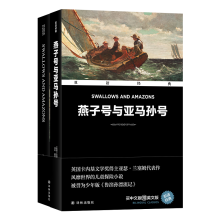In the year 527 Flavius Anicius Justinianus became ruler of the eastern half of the Roman Empire.
This Serbian peasant (he came from Uskub,the much disputed railroad junction of the late war) had no use for“book learning.”It was by his orders that the ancient Athenian school of philosophy was finally suppressed. And it was he who closed the doors of the only Egyptian temple that had continued to do business centuries after the valley of the Nile had been invaded by the monks of the new Christian faith.
This temple stood on a little island called Philae,not far from the first great waterfall of the Nile. Ever since men could remember,the spot had been dedicated to the worship of Isis and for some curious reason,the Goddess had survived where all her African and Greek and Roman rivals had miserably perished. Until finally,in the sixth century,the island was the only spot where the old and most holy art of picture writing was still understood and where a small number of priests continued to practice a trade which had been forgotten in every other part of the land of Cheops.
And now,by order of an illiterate farmhand,known as His Imperial Majesty,the temple and the adjoining school were declared state property,the statues and images were sent to the museum of Constantinople and the priests and the writing-masters were thrown into jail. And when the last of them had died from hunger and neglect,the age-old trade of making hieroglyphics had become a lost art.
All this was a great pity.
If Justinian ( a plague upon his head!) had been a little less thorough and had saved just a few of those old picture experts in a sort of literary Noah's Ark,he would have made the task of the historian a great deal easier. For while (owing to the genius of Champollion) we can once more spell out the strange Egyptian words,it remains exceedingly difficult for us to understand the inner meaning of their message to posterity.
And the same holds true for all other nations of the ancient world.
……
展开











——钱满素